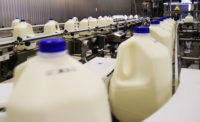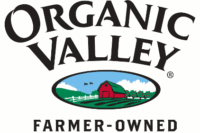For today’s lesson in anthropology, let’s consider the residents of the great state of Maine. The native-born citizens are fiercely proud of their heritage. They refer to themselves as Maineiacs. Long-time residents of Maine who were born outside of the state (“from away”) are still considered visitors, even by their younger, native-born neighbors. Mainers love their home-grown brands and foods, including lobsters, blueberries, L.L. Bean and Oakhurst Dairy.
Now let’s consider Maine’s dairy industry. There are only four fluid milk plants in the entire state. The largest based in Maine is Oakhurst Dairy, an independently owned, third-generation dairy processor of milk, cream, sour cream and nondairy beverages. It employs about 200, with 160 at the headquarters in Portland and the others at warehouses elsewhere in the state and northern New England.
Bill Bennett is the chairman of the board of the company his grandfather founded in 1921. Bennett’s younger brother John was named co-president with Tom Brigham in 2012. Sisters Althea Bennett McGirr (director of Customer Service and Consumer Affairs) and Jean Bennett Driscoll (executive assistant) work in the office. Priscilla Bennett Doucette chairs the Charitable Giving Committee and Mary Ellen Bennett Tetreau chairs the Marketing Advisory Committee. Stan Bennett, the beloved oldest brother, passed away in 2011.
Fluid milk processing is a tough business to be in. Being a local brand is certainly an advantage, but it doesn’t make Oakhurst immune from demographic trends and shifts in the way Americans buy and consume food. The company is dealing with national trends, like decreased consumption of milk. That trend is made even worse by Maine’s demographics. The percentage of children age 19 and younger (the prime milk-drinking years) did not change from 2000 to 2010, according to the U. S. Census. Oakhurst also faces strong competition from regional and national brands.
In the face of all of that, Oakhurst is finding a way to succeed. It is the leading brand of fluid dairy products in Maine and parts of northern New England. The company is an innovator in developing “value-added” milks that move the beverage from commodity status to a functional food. Management has dropped business that was unprofitable and sought co-packing accounts to keep the filling lines moving.
Oakhurst has made many investments in energy efficiency (like solar power and bio-diesel) that drop the savings right to the bottom line. And it maintains tight ties with the communities it serves through charitable giving and support of nonprofit ventures.
New products in 2012, 2013
Oakhurst said it was “underdeveloped” in the cream category, so it made that category a major initiative in 2012. This year, Oakhurst is focusing on developing the business further. Research revealed two segments in the cream category, cooking and coffee. The coffee cream segment is divided into traditional dairy creams, fat-free half-and-half and non-dairy creamers. To meet these consumer needs, Oakhurst introduced a line of fat-free half-and-half cream sold in pints and quarts. In 2013, the emphasis is on increasing awareness, driving trial and increasing market share.
Also this year, the company will be promoting its chocolate milk as a recovery beverage, a theme also pushed by the Milk Processor Education Program, Washington, D.C. Oakhurst’s program will be a grassroots effort targeting local athletic events with large family audiences. The dairy processor wants the athletes and families to interact with its products and learn more about the benefits of low-fat chocolate milk. In past years, the processor has worked with school dieticians to teach them about chocolate milk’s nutrition, given information to sports coaches and supplied coolers of low-fat chocolate milk at soccer tournaments.
On the nondairy beverage side, Oakhurst is developing its iced tea and lemonade lines, which are sold year-round in pints and half-gallons. The company makes them with a tea concentrate. Recent new flavors include blueberry, raspberry and pomegranate. The company also bottles 100% Florida orange juice from concentrate, domestic apple juice and cranberry juice cocktail.
Perhaps Oakhurst’s biggest hit in 2012 was its Chocolate Nog, a truly home-grown beverage. As Co-President Tom Brigham tells it, “the guys in production” had been mixing Oakhurst’s Egg Nog and Premium Chocolate Milk in the employee break room for years. When the company decided to market the beverage, Oakhurst’s on-site lab worked on the proportions and the plant put it into production, selling it during the winter holiday season in pints and quarts. Oakhurst promoted Chocolate Nog with coupons and sampling. At an event in Nashua, N.H., Oakhurst gave away 2,300 10-ounce samples in three hours. The niche product increased the unit sales in the entire egg nog category for the season, John Bennett said.
The company does not have an R & D team or a formalized product development process. It identifies opportunities through primary and secondary research. Sometimes ideas come from customers, bubble up from employees (Chocolate Nog) and from vendors (tea flavors).
To offset the loss of traditional white milk sales, Oakhurst developed a line of value-added milks marketed under the sub-brand, Oakhurst Plus. Oakhurst uses milk as a platform to add nutrients, said Jim Lesser, vp of marketing and sales. Oakhurst Plus includes milks with added omega-3s (for heart, eye and brain health) and probiotics for gut health (Nu-Trish 1% and skim milks). The efforts appear to be working; retailers are receptive to the omega-3 line. Nu-Trish has been in the line for over 30 years and has a very loyal consumer base. New products are in the pipeline, but Oakhurst was not yet ready to elaborate when Dairy Foodsvisited in February.
Operating transparently is very important today as social media and vocal bloggers can quickly rally support for (or opposition to) any business. Oakhurst pays close attention to what consumers say and what they want. Oakhurst was among the first dairy processors to pledge not to use milk from cows given artificial growth hormones. In 2012, Oakhurst completed the removal of high-fructose corn syrup from all of its products. The processor reformulated recipes to remove HFCS and to reduce the amount of added sugars.
Brands and private labels
In New England, brands are stronger than in the rest of the country, which works in Oakhurst’s favor. Most of Oakhurst’s production volume (58%, as measured by quart-equivalents) is for its own brand. The remaining is for private-label accounts (including control brands) and national or regional brands. Customer segments are (in order of volume): retail groceries, mass merchandise and club stores, convenience stores, all other foodservice and schools. Oakhurst is not in the drug store channel, and that hurts, John Bennett admitted, because consumers are starting to shop drug stores for milk.
Economic factors, like the price of fuel and rising milk costs, are making consumers think more about their milk purchases. Consumers are trading down as milk prices rise. They either buy a smaller size or a less expensive brand, Lesser said.
To offset declining sales in Maine and to continue to grow, Bennett said Oakhurst has to fill in the gaps in distribution and leverage its strength in milk to grow other dairy segments, notably cream. The company also has to secure new accounts and grow outside of Maine, where it has market share to gain.
When Dean Foods closed its Garelick Farms plant in Bangor in January, Maine dairy farmers stood to lose $600,000 from the Maine Milk Pool. Oakhurst launched a “Keep Your Milk in Maine” campaign to raise consumer awareness. Buying milk processed in Maine would protect Maine dairy farmers. As the two largest processors in the state, Oakhurst and Massachusetts-based HP Hood (with a plant in Portland), stand to pick up the most brand share if consumers shift their purchases to Maine milk.
Oakhurst also pursues co-packing opportunities. It processes two private-label brands and an Oakhurst-owned control label for small accounts that want a distinctive brand, but not their own private label. In the private-label arena, Oakhurst manufactures white and flavored milks, orange juice, fruit drinks and soy-based flavored beverages.
In the community
No family business can last nearly 100 years without being a part of the communities it serves. Oakhurst gives back 10% of its profits to organizations that serve children and the environment. The company sees these two beneficiaries as tied together. When children are active outdoors (in hiking, camping, fishing and other activities), they are healthier and they develop a respect for preserving and conserving nature, Bill Bennett said.
Oakhurst’s bona fides on environmental issues are well documented. The company was honored in 2012 by the Innovation Center for U.S. Dairy for its reduction of greenhouse gas emissions, energy savings, water conservation and solid-waste reduction. Oakhurst buys biofuels from a Maine company that collects used oil from restaurants. In effect, yesterday’s French fries are powering a fleet delivering tomorrow’s milk. Oakhurst also runs four diesel-electric hybrid delivery trucks.
Individually, the Bennett family and executive officers serve on various boards, including the Salvation Army, Friends of Casco Bay, Boy Scouts of America, Boys and Girls Clubs and Rippleffect.
Looking ahead
Oakhurst ranks 84th on the Dairy 100, Dairy Foods’list of North America’s largest dairy processors, with annual sales of about $100 million. It is the only Maine-based company on the list. In conversations with company executives about Oakhurst’s main selling points, the phrase “commitment to doing the right thing” was a consistent theme. Being honest with and transparent to customers and consumers is one of the “right” things Oakhurst does. Maineiacs have learned that about Oakhurst. As the dairy processor grows its presence in adjoining New England states, perhaps consumers there will start to consider Oakhurst to be their hometown brand.












